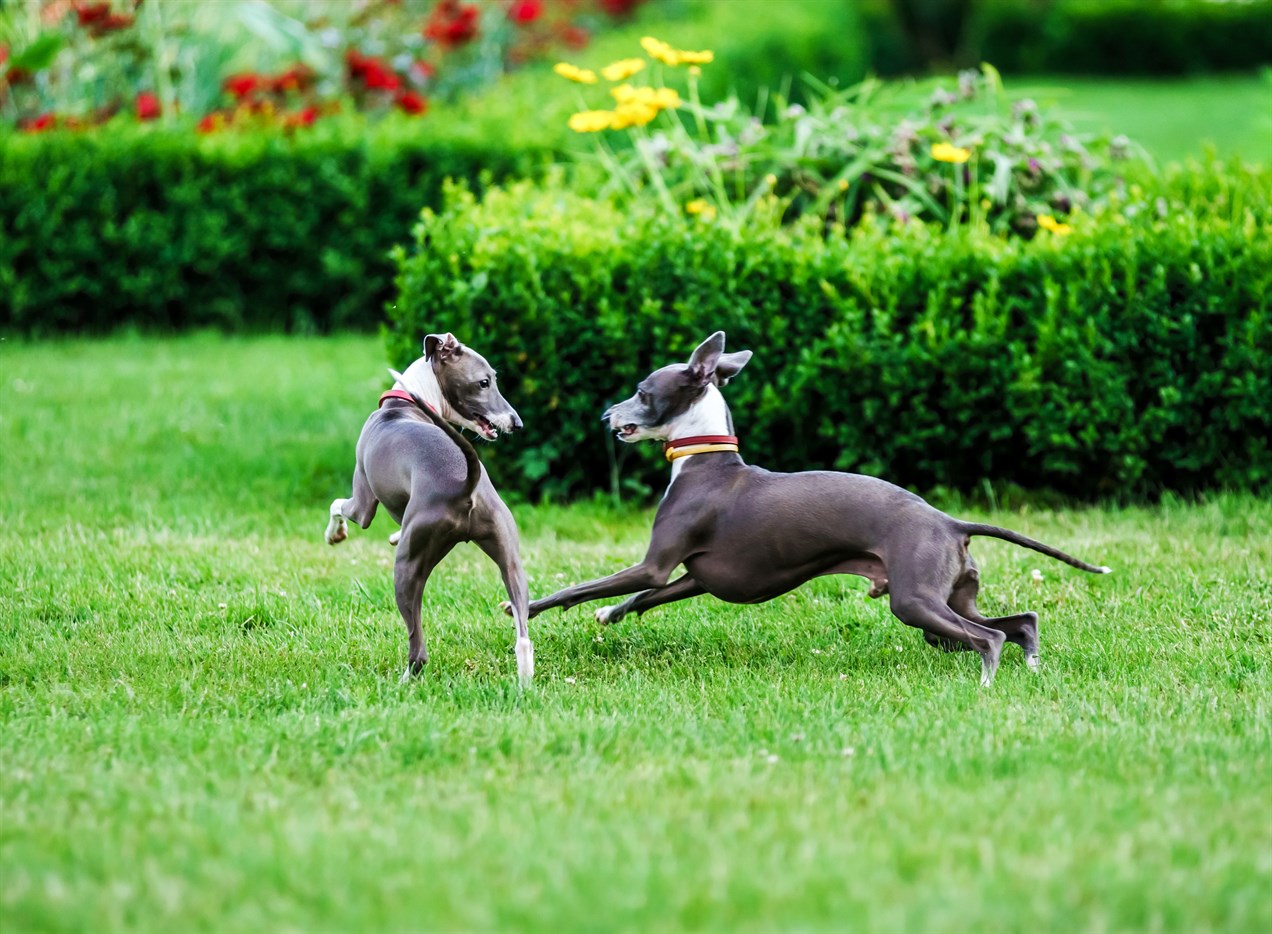Disadvantages of Owning a Greyhounds

While Greyhounds are wonderful dogs with many positive traits, like any breed, they also have certain downsides or disadvantages to ownership. It's essential for prospective owners to be aware of these factors to make an informed decision. Here are some of the downsides and cons of owning a Greyhound.
Sensitivity to Weather
Greyhounds have a thin coat and minimal body fat, making them sensitive to extreme temperatures. They can easily get cold in colder weather and are prone to overheating in hot weather. Owners need to take precautions to protect them from adverse weather conditions.
Prey Drive
Greyhounds have a strong prey drive, which means they may be inclined to chase after small animals, such as squirrels or rabbits, during walks. This behaviour can be challenging to manage, especially in areas with abundant wildlife.
Low Exercise Tolerance
While Greyhounds have bursts of energy and enjoy short sprints, they are not highly active dogs and may have lower exercise tolerance compared to some other breeds. Owners must provide daily exercise while being mindful of their energy levels.
Potential Health Issues
Greyhounds can be prone to certain breed-specific health issues, such as bloat, hip dysplasia, heart disease, and osteosarcoma. Regular veterinary check-ups and potential medical costs should be considered.
Socialisation Needs
Greyhounds benefit from proper socialisation, especially with other dogs and people. Failing to socialise them adequately can lead to shyness or anxiety.
Thin Skin
Greyhounds have thin skin, making them more susceptible to cuts and scrapes during outdoor activities. Owners may need to take extra precautions to protect their skin during play.
Sensitivity to Stress
Greyhounds are known to be sensitive dogs and may become stressed or anxious in certain situations. Changes in routine or environment can affect their well-being.
Limited Availability
While Greyhounds are not as rare as some breeds, they may not be readily available in all regions. Prospective owners may need to travel to find a reputable breeder or adopt from a Greyhound rescue organisation.
Adaptation to Home Life
Greyhounds, especially retired racing Greyhounds, may require some time to adjust to home life, including learning how to climb stairs, navigate slippery floors, and understand household routines.
Now, let's address the questions.
Do greyhounds have a bad reputation?
Greyhounds, as a breed, do not have a bad reputation. They are generally known for their gentle and calm nature. However, like any breed, individual dogs can vary in temperament, and negative behaviours can result from poor training or socialisation. Responsible ownership and training are essential for any breed.
Do greyhounds have a lot of problems?
Greyhounds, like all dogs, can have health issues and behavioural challenges. Some of these challenges may be specific to the breed, while others can be addressed with proper care, training, and attention to their individual needs. It's important to research and understand the breed's potential problems before deciding to bring a Greyhound into your home.
What are the downsides of owning a greyhound?
The downsides of owning a Greyhound include their sensitivity to weather, prey drive, potential health issues, exercise needs, socialisation requirements, and adaptability to home life. These factors should be considered carefully to ensure a happy and healthy life for your Greyhound.
What are the cons of a greyhound?
The cons of owning a Greyhound align with the downsides mentioned above, such as their susceptibility to weather conditions, potential health issues, and the need for proper socialisation and exercise. Additionally, Greyhounds may not be suitable for households with small pets due to their strong prey drive.
Greyhound puppies for sale
- Find Greyhound puppies for sale in ACT
- Find Greyhound puppies for sale in NSW
- Find Greyhound puppies for sale in NT
- Find Greyhound puppies for sale in QLD
- Find Greyhound puppies for sale in SA
- Find Greyhound puppies for sale in TAS
- Find Greyhound puppies for sale in VIC
- Find Greyhound puppies for sale in WA